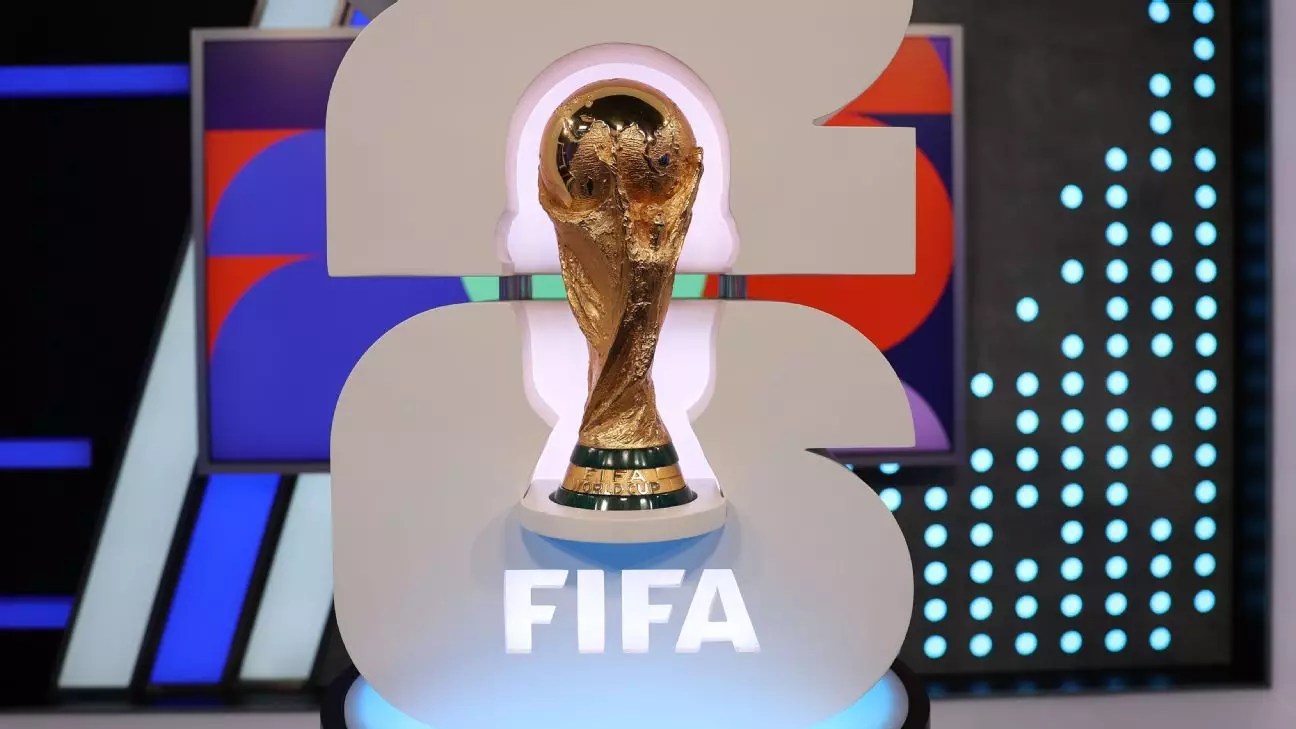In a significant move that highlights ongoing tensions within the football community, the Norwegian Football Federation (NFF) has publicly announced its intention to oppose FIFA’s decision-making process for the 2030 and 2034 World Cup hosting rights. With the virtual extraordinary Congress set to convene imminently, the NFF’s critical stance not only casts a shadow on the legitimacy of the process but urges a re-evaluation of FIFA’s governance practices.
As FIFA prepares to confirm the single bids from Morocco, Spain, and Portugal for the 2030 World Cup and Saudi Arabia for the 2034 edition, the NFF’s concerns about the exclusivity and transparency of the bidding process gain even more relevance. This situation is perplexing: with only one bid for each tournament, the expected acclamation appears almost superficial. The NFF’s criticism serves to challenge whether this method truly represents a legitimate selection process or if it merely orchestrates an illusion of democratic engagement.
The NFF has articulated its frustrations through formal channels, clearly stating that it cannot endorse a process it considers fundamentally flawed. President Lise Klaveness’s assertion that the upcoming vote is not about who hosts the tournaments but rather about providing feedback on FIFA’s allocation process is particularly telling. This insistence on transparency and adherence to ethical governance principles strikes at the heart of the global football community’s struggle for accountability and fairness.
While other nations, including Argentina, Chile, Uruguay, and Paraguay, initially sought to be part of the 2030 festivities, their pursuits were undermined by FIFA’s unilateral decisions. As the host rights were almost predetermined, it raises questions about the true purpose of the Congress: is it a platform for genuine deliberation or merely a rubber-stamping of decisions already made behind closed doors?
A crucial aspect of the NFF’s critique pertains to FIFA’s guidelines for human rights and due diligence. Klaveness suggests that the current processes fall woefully short of integrating these principles, which risks not only undermining the reputation of the global football governing body but also exposes potential human rights violations in the host nations. The importance of integrating robust human rights safeguards in the bidding process cannot be overstated, particularly given the growing scrutiny of how such events impact local communities and international spectators alike.
Many football associations are increasingly vocal about the need for reforms that reflect societal values, and the NFF’s stance aligns with a broader sentiment calling for ethical governance in sports. As the conversation shifts from mere organizational efficiency to moral responsibility, FIFA must confront its legacy and the real-world implications of its decisions.
The NFF’s objections reflect a more significant unease within the football community regarding governance practices at FIFA. By taking a stand against the convention of awarding bids by acclamation, the NFF positions itself as an advocate for change, emphasizing that football governance must be grounded in predictability and ethical integrity. Their actions urge other federations to consider their own positions and the importance of transparency in the decision-making process.
This pivotal moment underscores an essential aspect of sports governance: the balance between operational efficiency and adherence to ethical standards. The NFF’s campaign could potentially galvanize support from other football associations who share similar concerns about FIFA’s governance model and its implications for the future of international football.
As we advance towards the FIFA Congress, the NFF’s firm stance serves as a call to action for global football authorities. In a world where public awareness and advocacy for human rights and ethical governance are paramount, the NFF’s criticisms are a reminder of the responsibility that world football leaders hold. If FIFA aspires to be a credible custodian of the sport, it must prioritize a transparent and open bidding process that respects the principles of fair governance and human rights, ensuring trust is not just a historical obligation but a current mandate.


Leave a Reply